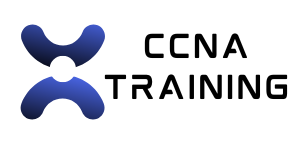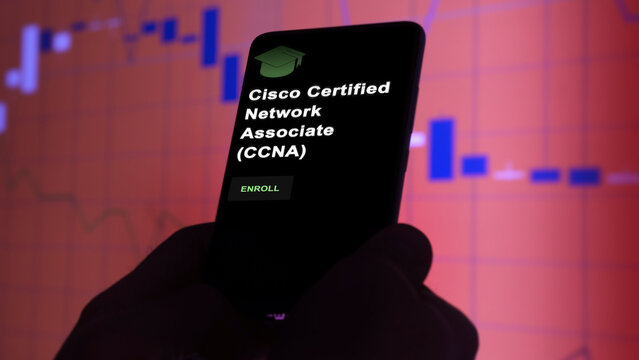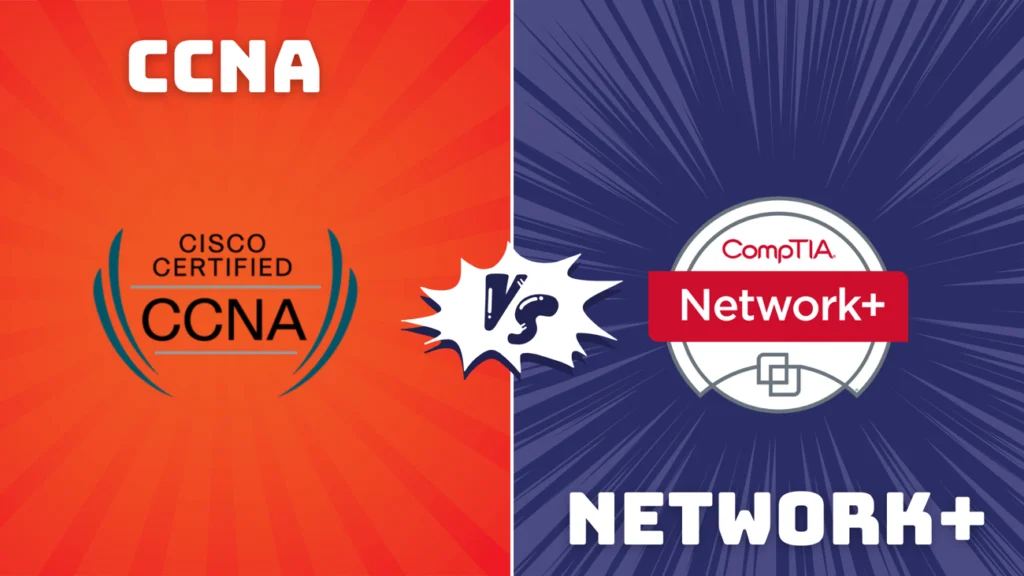CCNP Enterprise and CCNA certifications are both valuable credentials in the field of networking, but they cater to different levels of expertise and experience. CCNA, or Cisco Certified Network Associate, is an entry-level certification that validates a candidate’s ability to install, configure, operate, and troubleshoot small to medium-sized networks. On the other hand, CCNP Enterprise, or Cisco Certified Network Professional Enterprise, is a more advanced certification that demonstrates a candidate’s knowledge and skills in enterprise networking solutions. CCNP Enterprise covers a wide range of topics such as advanced routing, switching, troubleshooting, and security, making it suitable for professionals who are looking to specialize in complex network infrastructures.
CCNA certification is a great starting point for individuals who are new to the networking field or have limited experience. It provides a solid foundation in networking concepts and technologies, making it easier for candidates to understand more advanced topics covered in the CCNP Enterprise certification. On the other hand, CCNP Enterprise is designed for experienced networking professionals who are looking to advance their careers and take on more complex networking challenges. It requires a deeper understanding of networking concepts and technologies, as well as hands-on experience with enterprise-level networking equipment and solutions. Overall, the main difference between the two certifications lies in their level of complexity and the depth of knowledge required to pass the exams.
Key Takeaways
- CCNP Enterprise certification is more advanced and covers a wider range of networking topics compared to CCNA certification.
- CCNP Enterprise certification is suitable for individuals aspiring for higher-level networking roles, while CCNA certification is ideal for entry-level networking positions.
- Assess your career goals and aspirations to determine which certification aligns with your long-term objectives.
- Evaluate your current skill set and experience to identify the level of certification that best suits your knowledge and expertise.
- Consider the time and effort required for each certification, as CCNP Enterprise typically demands more extensive preparation and study.
Assessing Your Career Goals and Aspirations
When considering which certification to pursue, it’s important to assess your career goals and aspirations. If you’re just starting out in the networking field and are looking to land your first networking job, CCNA certification may be the best option for you. It will provide you with the foundational knowledge and skills needed to kickstart your career in networking and open up entry-level job opportunities in the industry. On the other hand, if you already have some experience in networking and are looking to advance your career to a more senior or specialized role, CCNP Enterprise certification may be more suitable for you. It will help you develop a deeper understanding of enterprise networking solutions and prepare you for more challenging job roles in the field.
It’s also important to consider your long-term career goals when choosing between CCNA and CCNP Enterprise certifications. If you aspire to become a network architect, network engineer, or network administrator in a large enterprise environment, CCNP Enterprise certification will be more beneficial for you. It will equip you with the advanced skills and knowledge needed to design, implement, and troubleshoot complex network infrastructures. On the other hand, if you’re aiming for entry-level positions such as network support technician or help desk technician, CCNA certification will be sufficient to get your foot in the door. Ultimately, assessing your career goals and aspirations will help you make an informed decision about which certification aligns best with your professional ambitions.
Evaluating Your Current Skill Set and Experience
Before deciding which certification to pursue, it’s crucial to evaluate your current skill set and experience in the networking field. If you’re new to networking or have limited experience, CCNA certification may be a more realistic starting point for you. It covers fundamental networking concepts and technologies that are essential for beginners in the field. However, if you already have several years of experience working with enterprise-level networking solutions and are familiar with advanced routing, switching, and troubleshooting techniques, pursuing CCNP Enterprise certification may be a more logical choice for you.
It’s also important to consider your hands-on experience with networking equipment and technologies when evaluating your readiness for either certification. CCNP Enterprise certification requires candidates to have practical experience with enterprise-level networking solutions, so if you have been working with such equipment in your current role or have access to it for practice, you may be better prepared for the CCNP Enterprise exams. On the other hand, if you have limited access to enterprise-level networking equipment and are still building your hands-on experience, starting with CCNA certification may be a more feasible option for you. Overall, evaluating your current skill set and experience will help you determine which certification aligns best with your existing knowledge and expertise.
Considering the Time and Effort Required for Each Certification
| Certification | Time Required | Effort Required |
|---|---|---|
| Project Management Professional (PMP) | 3-6 months | High |
| Certified Information Systems Security Professional (CISSP) | 6-12 months | High |
| Certified ScrumMaster (CSM) | 2 days | Low |
| Microsoft Certified: Azure Solutions Architect Expert | 3-6 months | High |
When deciding between CCNA and CCNP Enterprise certifications, it’s important to consider the time and effort required to prepare for each exam. CCNA certification typically requires less time and effort compared to CCNP Enterprise certification due to its focus on foundational networking concepts. Candidates can expect to spend several months studying for the CCNA exam, especially if they are new to the networking field or have limited experience. However, with dedication and consistent study habits, it is achievable for individuals with varying levels of experience.
On the other hand, CCNP Enterprise certification demands a greater time commitment and effort due to its advanced level of content. Candidates should expect to spend several months or even a year preparing for the CCNP Enterprise exams, especially if they are aiming to achieve a deep understanding of enterprise networking solutions. This certification is designed for experienced professionals who are willing to invest significant time and effort into mastering complex networking topics. It’s important to carefully consider your availability and willingness to dedicate time to studying and preparing for either certification before making a decision.
Exploring the Job Market and Demand for CCNP Enterprise and CCNA Professionals
Before pursuing any certification, it’s essential to explore the job market and demand for professionals holding CCNP Enterprise and CCNA certifications. Both certifications are widely recognized in the industry and can open up various job opportunities for candidates. However, it’s important to note that the job market demand for individuals holding these certifications may vary based on geographical location, industry sector, and specific job roles.
In general, professionals holding CCNP Enterprise certification are in high demand in large enterprises, internet service providers (ISPs), and telecommunications companies that require advanced networking expertise. Job roles such as network engineer, network architect, and network administrator often require or prefer candidates with CCNP Enterprise certification due to the complexity of their responsibilities. On the other hand, individuals holding CCNA certification are well-suited for entry-level positions such as network support technician, help desk technician, or junior network administrator in small to medium-sized organizations.
It’s important to research job postings in your area of interest and speak with industry professionals to gain insights into the demand for both certifications. This will help you make an informed decision about which certification aligns best with your career goals and the job market demand in your desired industry sector.
Seeking Advice and Guidance from Industry Professionals and Mentors

Seeking advice and guidance from industry professionals and mentors can be invaluable when deciding between CCNA and CCNP Enterprise certifications. Networking with professionals who hold these certifications or have experience working in the field can provide you with valuable insights into the benefits and challenges of each certification. They can share their personal experiences, career progression paths, and the impact that their certifications have had on their professional development.
Mentors can also provide guidance on which certification aligns best with your career goals and aspirations based on their own experiences in the industry. They can offer advice on study resources, exam preparation strategies, and potential job opportunities that may be available to individuals holding either certification. Additionally, seeking advice from industry professionals can help you gain a better understanding of the skills and knowledge that employers are looking for when hiring candidates with CCNA or CCNP Enterprise certifications.
Making an Informed Decision and Creating a Plan for Certification Success
After carefully considering all factors such as career goals, current skill set, time commitment, job market demand, and advice from industry professionals, it’s time to make an informed decision about which certification to pursue. Whether you choose CCNA or CCNP Enterprise certification, creating a detailed study plan is essential for certification success. This plan should include setting specific study goals, allocating dedicated study time each day or week, identifying relevant study resources such as books, online courses, practice exams, and seeking out study groups or communities for support.
It’s important to stay motivated and focused throughout your certification journey by tracking your progress, reviewing challenging topics regularly, and seeking help from mentors or study partners when needed. Additionally, considering pursuing additional certifications or specializations within the Cisco certification track can further enhance your skills and marketability in the industry.
In conclusion, choosing between CCNA and CCNP Enterprise certifications requires careful consideration of various factors such as career goals, current skill set, time commitment, job market demand, advice from industry professionals, and creating a solid study plan for success. Both certifications offer valuable opportunities for professional growth and advancement in the field of networking, so it’s important to weigh all aspects before making a decision that aligns with your long-term career aspirations.
FAQs
What is CCNP Enterprise?
CCNP Enterprise is a professional-level certification offered by Cisco for network engineers. It covers advanced networking topics such as implementing and operating Cisco Enterprise network solutions.
What is CCNA?
CCNA is an entry-level certification offered by Cisco for network engineers. It covers foundational networking topics such as network fundamentals, network access, IP connectivity, IP services, security fundamentals, and automation and programmability.
What are the differences between CCNP Enterprise and CCNA?
CCNP Enterprise is a higher-level certification than CCNA, covering more advanced and complex networking topics. CCNP Enterprise is designed for experienced network professionals, while CCNA is designed for entry-level network engineers.
Which certification should I pursue, CCNP Enterprise or CCNA?
If you are new to networking or have limited experience, you should pursue CCNA. If you have several years of networking experience and want to advance your career, you should pursue CCNP Enterprise.
Can I pursue CCNP Enterprise without having CCNA?
Yes, you can pursue CCNP Enterprise without having CCNA. However, having a CCNA certification is recommended as it provides a strong foundation for the more advanced topics covered in CCNP Enterprise.














